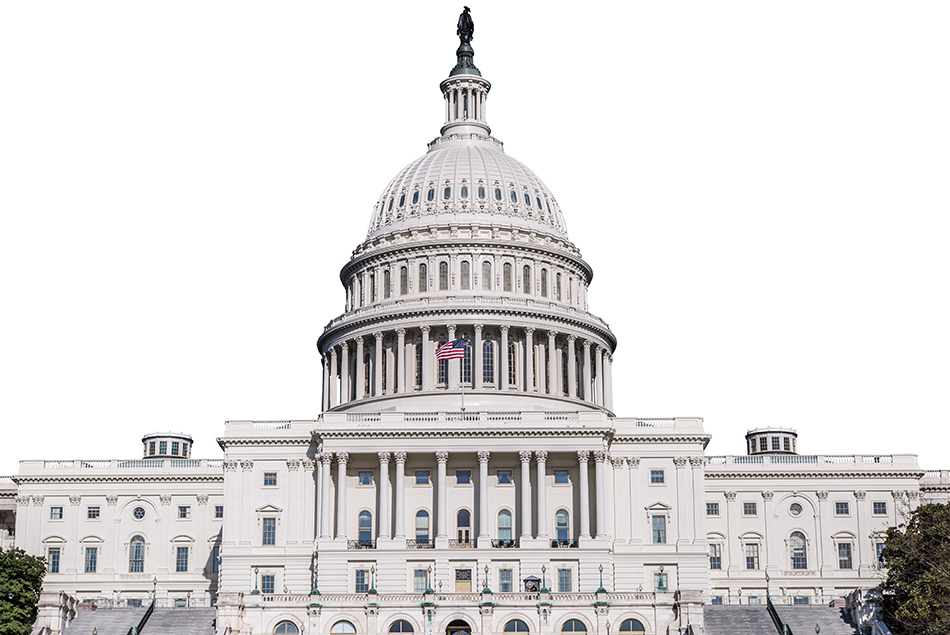D.C. Weighs in on FCC Section 230 Review
FCC chairman signaled social media should not get special immunity treatment

The smarter way to stay on top of the multichannel video marketplace. Sign up below.
You are now subscribed
Your newsletter sign-up was successful
FCC chairman Ajit Pai's statement that the FCC has the authority to review Section 230, and will do so to "clarify" it in response to a petition from the Trump Administration drew immediate comment from stakeholders inside and outside the Beltway.
House Republican leaders were all for clarification.
Related: FCC Will Clarify Sec. 230
“Time and time again we’ve seen big tech companies refuse to be transparent about their practices and too often unfairly censor right of center voices," said Rep. Greg Walden (R-Ore.), ranking member of the House Energy & Commerce Committee; Rep. Bob Latta (R-Ohio); and Cathy McMorris Rodgers (R-Wash.), ranking member of the Consumer Protection Subcommittee. "This must stop. Twitter, Facebook, and others should take a long, hard look at the policies that determine what they suppress on their platforms. Why is the New York Post story problematic, but stories from other outlets containing leaked, hacked, or classified information okay? At what point do these platforms take on the responsibility of publishers, and should they be treated as such? Should Section 230 protections apply to platforms who act as publishers? We’re encouraged to see these questions being raised and look forward to working with key stakeholders, including the FCC, to clarify the intent of a law enacted nearly 25 years ago."
“It looks like FCC chairman Ajit Pai agrees with the comments that the Free State Foundation submitted to the Commission contending that the agency possesses the authority to clarify the meaning of some of Section 230’s terms and that it may be able to do so consistent with the First Amendment," said Free State Foundation president Randolph May. "In our comments, we emphasized that there is a difference between the FCC providing its interpretation as to the meaning of Section 230’s provisions, for whatever weight the courts then may decide to give to the agency’s interpretation, and the FCC taking enforcement actions pursuant to Section 230. And we emphasized that any action that has the effect of narrowing Section 230’s broad grant of immunity doesn’t necessarily violate the First Amendment. There is an important distinction, for purposes of the First Amendment application, between protecting a content provider’s, say Twitter’s, right to decide what to carry or delete, and granting such content provider immunity from suits for all of its content moderation decisions. I’m pleased, but not surprised, that [chairman] Pai appreciates these points regarding the First Amendment and the Commission’s legal authority."
Chip Pickering, CEO of INCOMPAS, saw it differently.
“Congress, not the FCC, has authority over Section 230 and has been extremely active in that conversation," he said.
The smarter way to stay on top of the multichannel video marketplace. Sign up below.
That includes during the Senate Judiciary Committee nomination hearing for Supreme Court nominee Amy Coney Barrett Thursday, where Committee Chairman Lindsey Graham said it was past time for a Silicon Valley reckoning over Sec. 230 immunity.
"While we don’t doubt the intentions of chairman Pai and others, there is simply not a sufficient record of support at the FCC that warrants Commission involvement at this time," said Pickering. "Even the original authors of Section 230 said the FCC has no role to play in the law’s interpretation and have warned against the risks to small businesses and start-ups online.”
Pai said Thursday (Oct. 15) that his general counsel has concluded the commission had the authority.
“Retaliating against companies enforcing their Terms of Service by initiating regulatory proceedings is not how democracies are supposed to work," said Computer & Communications Industry Association president Matt Schruers. "There is broad consensus on the importance of moderating online content, and most would agree it is particularly critical amid an election and a pandemic. Being a political figure isn’t a free pass to break digital services’ content rules.”
“The chairman’s announcement to move forward with a rulemaking to police speech on social media platforms marks a sad day for the FCC, an independent agency, to be dictated to by Trump on Section 230," said Michael Copps, former FCC chairman and commissioner and currently special adviser to Common Cause, who argues Pai is using government resources to abet the spread of election disinformation. "Chairman Pai meets himself coming around the corner thinking he can regulate digital platforms despite repealing net neutrality and abdicating the agency’s authority to regulate broadband.
“By initiating a rulemaking, the FCC is doing the bidding of the President – to put political pressure on social media platforms that would prevent them from taking any action to correct blatant disinformation he spreads online, particularly content that would suppress the votes of American citizens. It’s no surprise that the chairman’s announcement comes weeks before the election when social media platforms are taking more steps to curb the spread of election disinformation."
Contributing editor John Eggerton has been an editor and/or writer on media regulation, legislation and policy for over four decades, including covering the FCC, FTC, Congress, the major media trade associations, and the federal courts. In addition to Multichannel News and Broadcasting + Cable, his work has appeared in Radio World, TV Technology, TV Fax, This Week in Consumer Electronics, Variety and the Encyclopedia Britannica.

